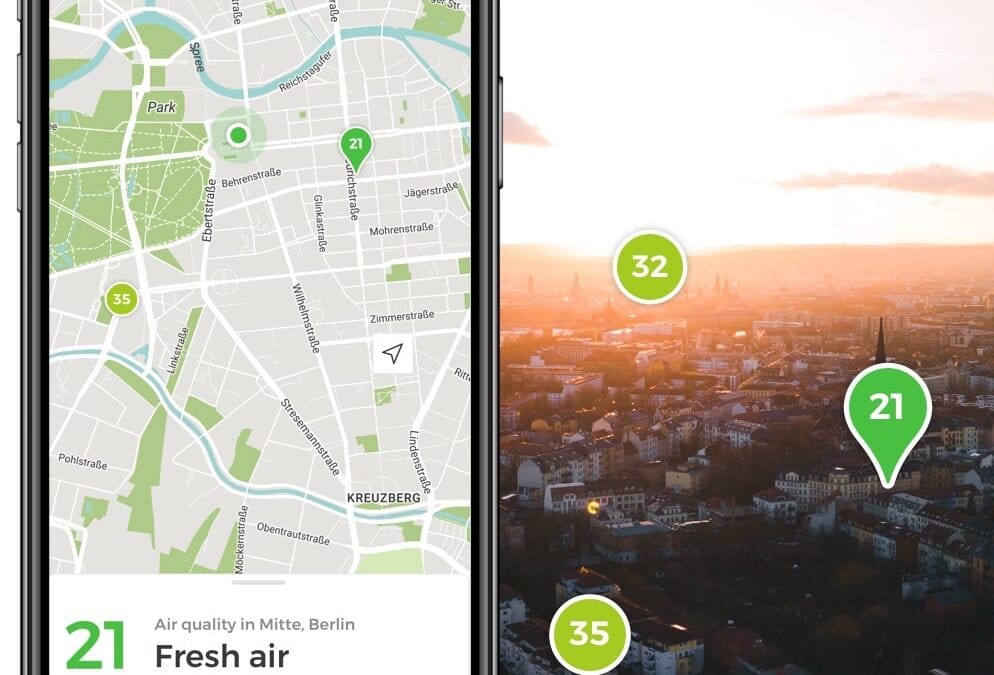According to NASA and the European Space Agency, air pollution over major Chinese cities had decreased by 30-50% (nitrogen dioxide) compared to the same period last year.
This boost in air quality has been linked to the Coronavirus (covid-19) related quarantine of several cities since the main sources of pollutants are linked to road traffic and factory emissions.
So, it seems that even a short-term reduction in air pollution can make a difference. Or is this a fact? Are there potentially health benefits due to the Coronavirus?
Maybe so for outdoor pollution, but those people isolated at home and who are avoiding crowds may also have been exposed to more indoor air pollution.
And not all cities in China have experienced the recent improvements in outdoor air quality. In mid-February, Beijing saw a spike in pollution due to local weather patterns trapping air in the region.
Health experts state that long-term exposure to air pollution can lead to compromised lung capacity, which in turn could make an individual more likely to develop a severe form of COVID-19 also known as Coronavirus.
The drop in air pollution is also likely to disappear as industry ramps up again in an attempt to offset any economic losses. Therefore, unless we get serious about restructuring our society, hazardous air pollution levels will come back. For precedent for this kind of economic downturns, one can look back to the 2008 financial crash in the USA. It caused a three percent reduction in global greenhouse gas emissions, but those emissions went right back to normal over the next few years as the economy recovered.
What can we then do? Only option is to go green. It naturally helps to have a government in place that uses subsidies to encourage the adoption of renewables, rather than continuing with business as usual. History shows that sometimes after an economic shock, a reorganization of the economy is likely to follow, which happened after the 2008 financial crash, with President Obama signing the American Recovery and Reinvestment Act.
But human behavior can also to have an impact, independent of any governmental intervention, Maybe, with this Coronavirus crisis, more companies will realize that e.g. Cathy from the bookkeeping department does not necessarily need to be in the office to get her job done. She can work from home. And that means less commuting, and less emissions – as in the US and Europe, transportation accounts for some 20 percent or more of overall emissions.
The irony is that the economic slowdown might actually save more lives than the coronavirus kills.
However, this will not be the first mega-crisis due to a more interconnected world that we will experience. We are probably going to see more and more shifts in global weather patterns, and possibly more extreme events like the wildfires in Australia.
It is a critical moment for all countries now to agree on a global framework to halt the destruction of the planet’s plants, wildlife and our lives. Environmental studies professor Gernot Wagner put it in the MIT Technology Review: “Emissions in China are down because the economy has stopped and people are dying, and because poor people are not able to get medicine and food. This is not an analogy for how we want to decrease emissions from climate change.”
With our Oo sensor and Geme.io, we do our best to create a platform for awareness which is the first step for change. In libraries, patrons can loan Oo sensor ad see their personal exposure to air pollution right here and now. The Geme.io app and its virtual map shows the air pollution, in real-time, down to the street level. We are working hard at Geme.io to get more cities and libraries in the world involved.
So, what can you do?
Wash your hands and stay safe, that is what matters right now. But make sure not to forget about the climate crisis. Fight on with Oo sensor and Geme.io.


Recent Comments